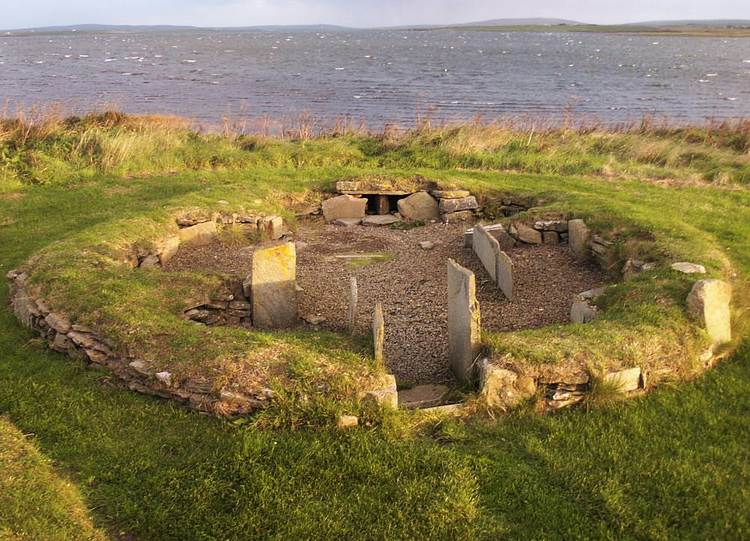Image: Barnhouse settlement by Martin McCarthy (Tumulus)
Lately along with thinking about tiny houses I’ve also been thinking about various sustainable and alternative farming techniques. Many of the deep patterns of contemporary human civilization began to form with the development of agriculture. The movement away from hunting and gathering and living in mobile nomadic bands to staying in one place and domesticating the land and animals lead to concepts of private property and hierarchical human societies. This was called the Neolithic Revolution, from Wikipedia:
“These developments, sometimes called the Neolithic package, provided the basis for centralized administrations and political structures, hierarchical ideologies, depersonalized systems of knowledge (e.g. writing), densely populated settlements, specialization and division of labour, more trade, the development of non-portable art and architecture, and property ownership. The earliest known civilization developed in Sumer in southern Mesopotamia (c. 6,500 BP); its emergence also heralded the beginning of the Bronze Age.[7]”
What a list! The more predictable ability to produce food clothing and shelter allowed humans to move up Maslow’s hierarchy of needs and begin to create new civilizational technologies, like cities. Without this development our contemporary society wouldn’t exist. But looking over that list we can recognize the seeds of many of the modern forces of alienation and destructive human behavior. Centralization of power into hierarchies in my opinion being chief among them. In order to create efficiencies of scale and stability we ceded individual and small group autonomy to huge political and economic hierarchies, which in many cases produce terribly unequal distributions of influence and resources. My hope is that hierarchy and centralization will prove to be outdated technologies which we can overcome, like the fossil fuel powered internal combustion engine. Centralized systems are rigid and prompt rent seeking, authoritarianism and misguided attempts to organize the periphery from the center. With the explosive acceleration of decentralizing technologies like the internet, renewable energy and sophisticated sustainable agriculture my hope is that we can wrest back some of the control we’ve granted to these entities and usher in a new era of more localized autonomy and decision making both within cities and outside them.
One of the trends I see as hopeful in this regard is the emergence of cities as a more prominent social unit. When the current occupant of the American White House refused to ratify the Paris climate change accord we saw a number of mayors of cities worldwide stepping forward to say that they would instead, including Pittsburgh and my home of New York City. We increasingly see cities beginning to create their own international foreign policy. This seems like an inevitable trend as populations continue to urbanize and economic and political power concentrates in cities. Perhaps we can see a rebalancing of power from the nation state down to the level of the region and municipality, smaller units of government in which citizens can interact more directly and have their needs better met. Richard Florida has written on this subject and I find his thoughts about it illuminating, you can read some here.
In the long span of human history we may discover that centralization was a necessary evil required by the need for food security, and then in support of information density in cities. As we move into the next stage of human history and unlock new technologies in food, energy, information and communication my hope is that it becomes possible for humans to become more loosely tethered to the system and reassert their individuality and agency in order to live more productive and less alienated lives.





